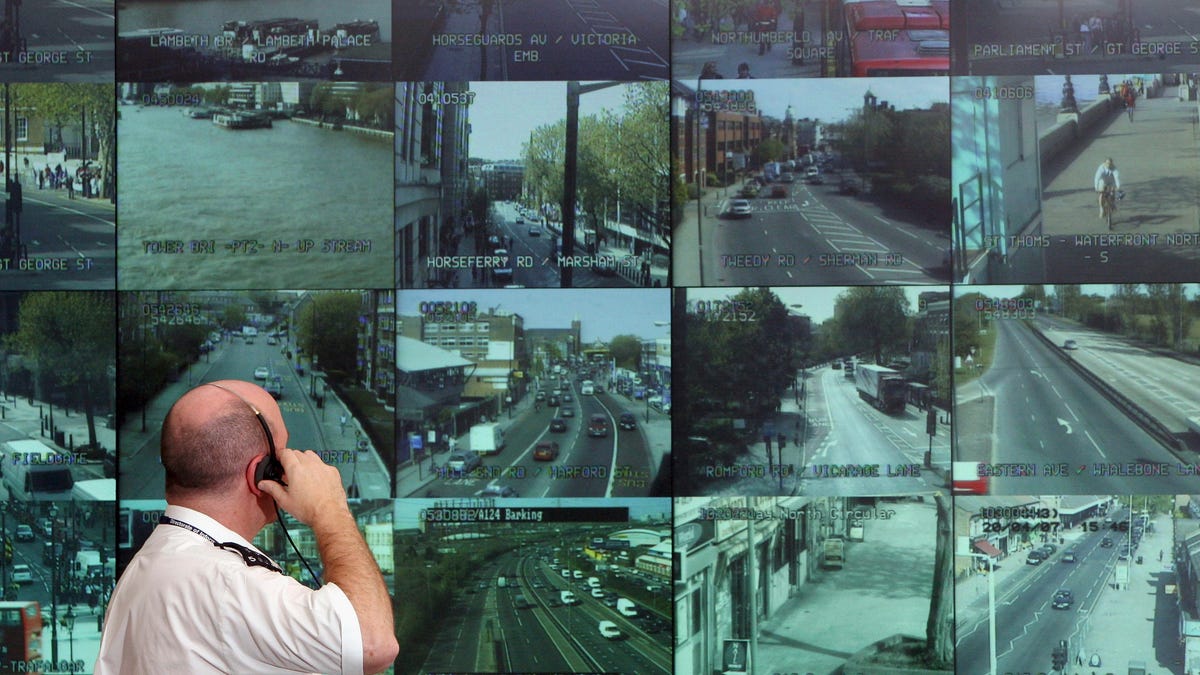How tech giants rank at protecting your privacy
Adobe, Dropbox and Pinterest are among the companies doing the most to keep your personal info from the government, a privacy watchdog finds.

Governments are watching for your data. The EFF tells us how companies rank at protecting your privacy.
Just how good are technology companies at keeping your secrets?
That's what the Electronic Frontier Foundation sought to determine through its seventh annual "Who Has Your Back" report, released Monday. The online privacy watchdog evaluated 26 tech companies on how well they protect people from government surveillance.
User privacy has become a major issue for millions of people as technology becomes more advance and is able to keep track of a person's likes, dislikes, friends, family and location at all times. The apps and devices that you use are a treasure trove of information, one companies control and law enforcement agencies want to access.
Apple in 2016 got tied up in a legal battle with the FBI over unlocking a terrorist's iPhone, while Amazon handed over voice data from the Echo for a murder trial in Arkansas. The Supreme Court is deciding on whether or not police need warrants to obtain phone location data from phone companies.
We expect a certain level of privacy on our devices, but government surveillance puts tech companies in a tough spot when legal concerns are on the line. Companies can fight back, demanding warrants and refusing to provide data, but not all organizations do.
The EFF ranked the companies on five criteria: if they followed best practices for privacy, if they informed users when the government requested data, if they promised not to sell users' data, if they stood up to gag orders and if they supported reforming the National Security Agency's Section 702 surveillance program.
Only nine companies got gold stars for all five criteria: Adobe, Credo, Dropbox, Lyft, Pinterest, Sonic, Uber, Wickr and Wordpress. Google, Microsoft and Facebook missed a mark for abiding by gag orders, while Apple lost one over its stance on the NSA's Section 702.
Amazon, the last of the Big Five tech companies, scored the lowest with only two stars, one for following best practices and another for its stance on Section 702. The retail giant didn't immediately respond to requests for comment.
Every major phone carrier on the list ranked low, with only one star for T-Mobile, Verizon and AT&T for following industry standards for privacy. That was something every company in the report got a star for.
"Both legacy telcos and the giants of Silicon Valley can and must do better. We expect companies to protect, not exploit, the data we have entrusted them with," said Nate Cardozo, EFF's senior staff attorney.
You can take a look at the full rankings list here:
The EFF's 2017 privacy report
It's Complicated: This is dating in the age of apps. Having fun yet? These stories get to the heart of the matter.
Tech Enabled: CNET chronicles tech's role in providing new kinds of accessibility.

